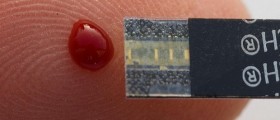
There are not a lot of women in the United States who end up with a gestational diabetes when they are pregnant. Studies claim that no less than 3% of pregnant women end up with it and no more than 5%.
Diabetes
A person who suffers from diabetes is in that condition because his or her body does not use the food in a proper way. Every person knows that the energy comes from glucose or from a breakdown of complex carbohydrates like starches for instance. When a person consumes sugar and starches, they get digested and enter the bloodstream in the form of glucose. Insulin aids in the process of getting the glucose from the bloodstream to the muscles and other tissues. Glucose needs insulin in order to get to the tissues. When there is no insulin glucose is excreted into the urine through the kidneys.
Insulin resistance
Women who suffer from gestational diabetes do not lack the insulin. However, that insulin is blocked by the hormones that are being made in the placenta. This particular condition is known as insulin resistance. Pancreas of women who do not have gestational diabetes produces enough insulin in order to overcome the resistance. When the pancreas cannot produce enough insulin to overcome the resistance it is considered that that woman suffers from gestational diabetes.
Increased risks of gestational diabetes
There is a fair number of factors that are connected with gestational diabetes. Some of the most common factors are obesity, diabetes in the family, stillbirth and a child with a birth effect. Certain researches claim that women older than the age of 25 are more likely to suffer from gestational diabetes. Experts agree that all pregnant women should be tested in order to be determined whether they suffer from this illness. In most cases, the doctors will use the 50-gram glucose screening test in order to determine whether a woman has gestational diabetes or not.
Prevention
A woman who is diagnosed with gestational diabetes needs to control the blood sugar level as soon as she is being diagnosed. Women need not worry much since this ailment does not cause birth defects. However, a lot of babies are born somewhat bigger than others. In these cases there is need for the cesarean section delivery. Sometimes the baby is born with hypoglycemia. When that happens the baby will be given glucose intravenously.
In order to prevent this from happening a woman should follow a certain diet plan. Women should also know that the gestational diabetes goes away straight after giving birth.
















Your thoughts on this
Loading...